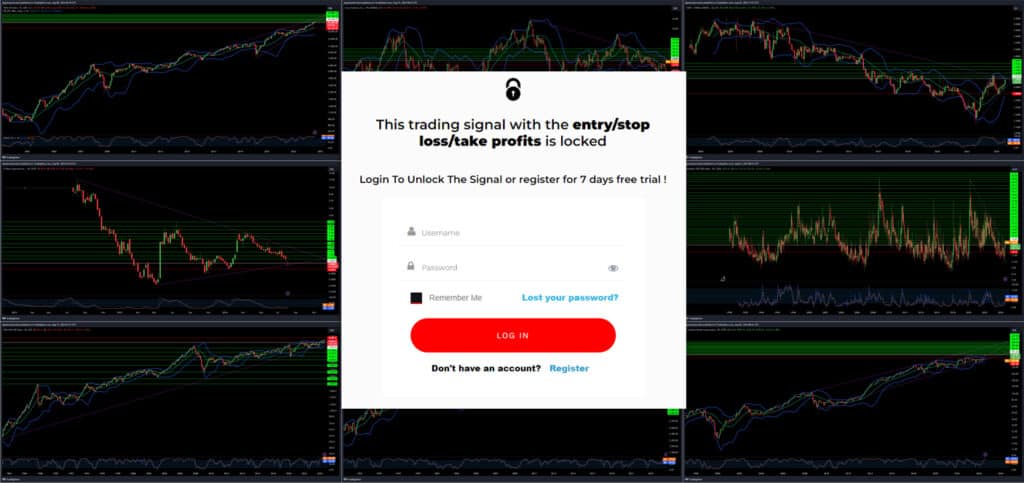As a beginner in the world of forex trading, understanding the role of forex brokers is crucial. Forex trading is a decentralized global market where participants trade different currencies. But how do you access this market? This is where forex brokers come in.
Forex brokers act as intermediaries between traders like me and the forex market. They provide us with the platforms and tools needed to buy and sell currencies. Without them, gaining access to the forex market would be challenging.
Forex brokers offer a range of services to help traders like me navigate the forex market. They provide access to the market itself, connecting us to liquidity providers such as banks and financial institutions. They also offer trading platforms that allow us to execute trades, monitor prices, and access a wide range of tools and indicators.
Furthermore, forex brokers determine the prices at which we can buy or sell currencies. These prices, known as spreads, are influenced by factors such as market conditions, liquidity, and the broker’s own pricing model. It’s important to understand how spreads work and how they can impact our trading results.
In addition to market access and pricing, forex brokers provide leverage and margin trading. Leverage allows us to trade larger positions with a smaller amount of capital, amplifying our potential profits (as well as losses). Margin trading enables us to borrow funds from the broker to open larger positions than we could afford with our own capital.
Lastly, many forex brokers offer educational resources and research tools to help us improve our trading skills. These resources can include webinars, articles, videos, and market analysis. Having access to these materials can significantly enhance our understanding of the forex market and our trading strategies.
When starting your forex trading journey, choosing the right forex broker is crucial. Factors to consider include regulation, reputation, trading conditions, and customer support. By selecting a reputable and reliable broker, you can enhance your chances of success in the dynamic world of forex trading.
Key Takeaways:
- Forex brokers act as intermediaries, connecting traders to the forex market and providing platforms for buying and selling currencies.
- They offer market access, trading platforms, pricing and execution services, leverage and margin, as well as educational resources and research tools.
- Choosing the right forex broker is crucial for success, considering factors such as regulation, reputation, trading conditions, and customer support.
- Forex brokers determine the prices at which traders can buy or sell currencies through spreads.
- Leverage and margin trading are provided by forex brokers, allowing traders to amplify potential profits and trade larger positions.
What is a Forex Broker and Their Functions
A forex broker plays a crucial role as an intermediary connecting traders to the forex market. They are the bridge that enables traders to access the market and execute trades. Forex brokers provide traders with essential functions and services, ensuring a seamless trading experience. Let’s delve into the functions that forex brokers perform:
Market Access
One of the primary functions of a forex broker is to provide traders with market access. They act as intermediaries, connecting traders to liquidity providers such as banks and financial institutions. By doing so, forex brokers enable traders to buy and sell currencies in the global forex market.
Trading Platforms
Forex brokers offer various trading platforms that serve as the interface for traders to interact with the market. These platforms allow traders to execute trades, monitor real-time prices, analyze technical indicators, and utilize tools for market analysis. Popular trading platforms include MetaTrader and cTrader, offering user-friendly interfaces and advanced functionalities.
Pricing and Execution
Forex brokers play a vital role in determining the prices at which traders can buy or sell currencies. They offer competitive pricing by providing spreads, which represent the difference between the buy and sell prices of a currency pair. Additionally, forex brokers ensure efficient and reliable execution of trades, allowing traders to enter and exit positions promptly.
Leverage and Margin
Forex brokers provide leverage and margin facilities to traders, allowing them to trade larger positions with a smaller amount of capital. Leverage magnifies trading profits but also increases the potential losses. Margin enables traders to hold larger positions than their account balance, covering potential losses that exceed their deposited funds.
Educational Resources and Research Tools
Many forex brokers offer educational resources and research tools to help traders improve their skills and make informed trading decisions. These resources may include tutorials, webinars, market analysis, economic calendars, and trading guides. By providing educational materials, forex brokers empower traders with knowledge and enhance their trading capabilities.
Forex brokers are essential facilitators in the forex trading journey, providing traders with the necessary tools, technologies, and support. Their functions encompass market access, trading platforms, pricing and execution, leverage and margin, as well as educational resources. Choosing a reputable and reliable forex broker is crucial for traders to navigate the dynamic currency markets effectively.
Choosing the Right Forex Broker
When it comes to forex trading, selecting the right forex broker is a critical decision that can significantly impact your trading success. There are several key factors to consider when choosing a forex broker, including regulation, reputation, trading conditions, and customer support.
Regulation and Compliance
Regulation plays a crucial role in ensuring the safety of your funds and protecting your interests as a trader. It’s essential to verify that the forex broker you are considering is regulated by a reputable financial authority. Regulatory bodies such as the Financial Conduct Authority (FCA) in the UK or the National Futures Association (NFA) in the US impose strict guidelines and standards on brokers to ensure fair and transparent trading practices.
Reputation and Track Record
Researching the reputation and track record of a forex broker is essential to gain insights into their reliability and credibility. Reading reviews and feedback from other traders can provide valuable information about the broker’s execution speed, order handling, and customer satisfaction. Additionally, checking for any regulatory actions or legal issues can help you assess the broker’s integrity and reliability.
Trading Conditions
Examining the trading conditions offered by different brokers is crucial in finding one that aligns with your trading style and goals. Key factors to consider include spreads, leverage, and margin requirements. Tight spreads can reduce trading costs, while flexible leverage and margin requirements allow you to control the size of your positions and manage risk effectively.
Customer Support
A reliable and responsive customer support team is vital in ensuring a smooth trading experience. Look for brokers that offer multiple channels of communication, such as phone, email, and live chat. Testing the responsiveness of their customer support before opening an account can help you gauge their level of professionalism and efficiency in addressing any issues or inquiries that may arise.
To make an informed decision, consider opening a demo account with the broker you are interested in. This allows you to test their trading platforms, execution speed, and overall services without risking real capital. Demo accounts provide a valuable opportunity to assess the broker’s offerings and evaluate their suitability for your trading needs.
Remember, choosing the right forex broker is a crucial step in your trading journey. By considering factors such as regulation, reputation, trading conditions, and customer support, you can increase your chances of finding a broker that meets your requirements and sets you up for trading success.
Continued [article content].
The Forex Market and How it Works
The forex market is a global marketplace where currencies are traded. Unlike traditional stock markets, it lacks a central marketplace and operates electronically over the counter. The market is open 24 hours a day and trades occur across major financial centers worldwide.
Currencies are traded against each other in currency pairs, and prices are determined by supply and demand factors. The forex market consists of three main segments: the spot market, the forwards market, and the futures market.
The Spot Market
In the spot market, also known as the cash market or the physical market, currencies are bought and sold for immediate delivery at the current market price. It is the most straightforward and popular way of trading currencies, where participants engage in direct transactions. Exchange rates in the spot market reflect the value of one currency relative to another, driven by various factors such as economic indicators, geopolitical events, and market sentiment.
The Forwards and Futures Markets
The forwards and futures markets, also known as the derivatives markets, involve contracts for future currency transactions at predetermined prices. In these markets, participants agree to buy or sell currencies on a specific date in the future. The forwards market allows for customization of contract terms, such as the transaction amount, delivery date, and exchange rate. On the other hand, the futures market standardizes contract terms and is traded on organized exchanges.
Both the forwards and futures markets provide opportunities for hedging against currency exchange rate risks and speculation on future price movements. These markets attract institutional investors, corporations, and professional traders who have specific currency exposure needs or seek to capitalize on short-term market fluctuations.
Exchange rates play a crucial role in forex trading as they determine the relative value of one currency against another. Traders monitor exchange rates closely to identify trading opportunities and make informed decisions. Exchange rates are influenced by a multitude of factors, including interest rates, economic indicators, geopolitical events, central bank policies, and market sentiment. Understanding these factors and their impact on exchange rates is essential for successful forex trading.
Getting Started in Forex Trading
To begin your journey in forex trading, it’s important to establish a solid foundation of knowledge about the market. There are several steps you can take to get started:
- Educate Yourself: Start by learning the basics of forex trading. There are many educational resources available, such as books, online courses, and webinars, that can help you understand the intricacies of the market and develop a strong understanding of fundamental and technical analysis.
- Choose a Reliable Broker: Selecting a reputable forex broker is crucial. Look for brokers that are regulated by reputable financial authorities and have a good track record. A reliable broker will provide you with a user-friendly trading platform, competitive spreads, and excellent customer support.
- Develop a Trading Plan: Creating a well-defined trading plan is essential for success in forex trading. Your trading plan should outline your trading goals and objectives, as well as your risk tolerance. It should also include strategies for entering and exiting trades.
- Implement Risk Management Strategies: Risk management is a critical aspect of forex trading. It involves strategies to protect your capital and minimize potential losses. Set a risk limit for each trade and use stop-loss orders to automatically exit a trade if it goes against your expectations.
- Start with a Demo Account: Before risking your real capital, it’s advisable to practice trading using a demo account. A demo account allows you to familiarize yourself with the trading platform, test your trading strategies, and gain confidence in your trading abilities without exposing yourself to financial risk.
- Learn Technical and Fundamental Analysis: Technical and fundamental analysis are two key approaches to analyzing the forex market. Technical analysis involves studying price charts and using indicators to identify patterns and trends. Fundamental analysis, on the other hand, focuses on economic and political factors that can impact currency prices. Understanding both forms of analysis will help you make informed trading decisions.
- Gradually Increase Position Size: As a beginner, it’s wise to start with smaller position sizes and gradually increase them as you gain more experience and confidence in your trading abilities. This approach will help you manage risk effectively and avoid significant losses.
By following these steps and continuously learning and improving your skills, you’ll be well on your way to becoming a successful forex trader.
| Advantages | Disadvantages | |
|---|---|---|
| Flexible Market | You can trade forex anytime and anywhere. | The market is volatile and can be unpredictable. |
| High Liquidity | There are always buyers and sellers in the market. | High liquidity can result in rapid price fluctuations. |
| Low Transaction Costs | Forex brokers typically charge low transaction fees. | Spreads and commissions can eat into your profits. |
| Leverage | Forex brokers offer leverage, allowing you to control large positions with a small amount of capital. | High leverage can magnify both profits and losses. |
| Opportunity to Profit in Bull and Bear Markets | You can profit from both rising and falling currency prices. | Market conditions can change rapidly, requiring quick decision-making. |
Conclusion
The role of forex brokers is paramount in the forex trading journey of beginner traders. These brokers act as intermediaries, providing the necessary tools, platforms, and services to execute trades and support traders in their quest for success. Selecting the right forex broker is crucial, considering factors such as regulation, reputation, trading conditions, and customer support.
In order to thrive as a beginner forex trader, continuous learning and knowledge acquisition are key. It is important to stay updated with the latest market trends, strategies, and analysis techniques. Additionally, implementing effective risk management practices is vital to protect capital and minimize potential losses.
Developing a disciplined approach towards forex trading is essential for long-term success. This includes setting realistic trading goals, adhering to a well-defined trading plan, and maintaining emotional control during market fluctuations. It is also crucial to maintain a balanced lifestyle, as well as uphold ethical trading practices.
By focusing on these aspects and adopting a long-term perspective, beginner forex traders can navigate the forex market with confidence and increase their chances of achieving their trading goals.
FAQ
What is the role of a forex broker?
A forex broker acts as an intermediary, connecting traders to the forex market and providing platforms for buying and selling currencies. They offer market access, trading platforms, pricing and execution services, leverage and margin, as well as educational resources and research tools.
How do forex brokers connect traders to the market?
Forex brokers connect traders to the market by linking them to liquidity providers such as banks and financial institutions. They provide traders with access to the market through their trading platforms, which allow traders to execute trades, monitor prices, and access tools and indicators.
What are spreads in forex trading?
Spreads refer to the prices at which traders can buy or sell currencies. Forex brokers play a vital role in determining these spreads, which are the difference between the bid (selling) and ask (buying) prices. Spreads can vary between brokers and currency pairs.
How is leverage and margin provided by forex brokers?
Forex brokers offer leverage and margin, allowing traders to trade larger positions with smaller capital. Leverage magnifies the potential gains and losses in trading. Margin is the amount of money that traders must have in their account to open and maintain trading positions.
What factors should I consider when choosing a forex broker?
When selecting a forex broker, consider factors such as regulation, reputation, trading conditions, and customer support. Ensure that the broker is regulated by a reputable financial authority and research their reputation and track record. Compare trading conditions such as spreads, leverage, and margin requirements. Testing the broker’s customer support is also recommended.
How does the forex market operate?
The forex market is a decentralized global market that operates electronically over the counter. Unlike traditional stock markets, it lacks a central marketplace. The market is open 24 hours a day and trades occur across major financial centers worldwide. Currencies are traded against each other in currency pairs, and prices are determined by supply and demand factors.
What are the spot, forwards, and futures markets in forex trading?
The forex market consists of the spot market, where currencies are bought and sold based on current trading prices. The forwards and futures markets involve contracts for future currency transactions at predetermined prices. These markets allow traders to hedge against currency fluctuations and speculate on future exchange rates.
How can beginners get started in forex trading?
Beginners should acquire a solid foundation of knowledge about the market through educational resources such as books, online courses, and webinars. Choose a reliable forex broker and set up a trading account. Develop a trading plan, including setting trading goals, determining risk tolerance, and selecting trading strategies. Practice on a demo account, learn technical and fundamental analysis, and gradually increase position size.
What is the key to success in forex trading?
Success in forex trading requires continuous learning, risk management, and developing a disciplined approach. Balancing trading with a healthy lifestyle, maintaining ethics, and having a long-term perspective are also emphasized for long-term success in the forex market.
Source Links
- https://www.investopedia.com/articles/forex/11/why-trade-forex.asp
- https://www.linkedin.com/pulse/forex-trading-101-beginners-guide-getting-started-foreign-md-tanjib
- https://www.forex.academy/the-role-of-brokers-in-forex-trading-a-beginners-guide/?amp=1
Disclaimer
All information on this website is of a general nature. The information is not adapted to conditions that are specific to your person or entity. The information provided can not be considered as personal, professional or legal advice or investment advice to the user.
This website and all information is intended for educational purposes only and does not give financial advice. Signal Mastermind Signals is not a service to provide legal and financial advice; any information provided here is only the personal opinion of the author (not advice or financial advice in any sense, and in the sense of any act, ordinance or law of any country) and must not be used for financial activities. Signal Mastermind Signals does not offer, operate or provide financial, brokerage, commercial or investment services and is not a financial advisor. Rather, Signal Mastermind Signals is an educational site and a platform for exchanging Forex information. Whenever information is disclosed, whether express or implied, about profit or revenue, it is not a guarantee. No method or trading system ensures that it will generate a profit, so always remember that trade can lead to a loss. Trading responsibility, whether resulting in profits or losses, is yours and you must agree not to hold Signal Mastermind Signals or other information providers that are responsible in any way whatsoever. The use of the system means that the user accepts Disclaimer and Terms of Use.
Signal Mastermind Signals is not represented as a registered investment consultant or brokerage dealer nor offers to buy or sell any of the financial instruments mentioned in the service offered.
While Signal Mastermind Signals believes that the content provided is accurate, there are no explicit or implied warranties of accuracy. The information provided is believed to be reliable; Signal Mastermind Signals does not guarantee the accuracy or completeness of the information provided. Third parties refer to Signal Mastermind Signals to provide technology and information if a third party fails, and then there is a risk that the information may be delayed or not delivered at all.
All information and comments contained on this website, including but not limited to, opinions, analyzes, news, prices, research, and general, do not constitute investment advice or an invitation to buy or sell any type of instrument. Signal Mastermind Signals assumes no responsibility for any loss or damage that may result, directly or indirectly, from the use or dependence on such information.
All information contained on this web site is a personal opinion or belief of the author. None of these data is a recommendation or financial advice in any sense, also within the meaning of any commercial act or law. Writers, publishers and affiliates of Signal Mastermind Signals are not responsible for your trading in any way.
The information and opinions contained in the site are provided for information only and for educational reasons, should never be considered as direct or indirect advice to open a trading account and / or invest money in Forex trading with any Forex company . Signal Mastermind Signals assumes no responsibility for any decisions taken by the user to create a merchant account with any of the brokers listed on this website. Anyone who decides to set up a trading account or use the services, free of charge or paid, to any of the Broker companies mentioned on this website, bears full responsibility for their actions.
Any institution that offers a service and is listed on this website, including forex brokers, financial companies and other institutions, is present only for informational purposes. All ratings, ratings, banners, reviews, or other information found for any of the above-mentioned institutions are provided in a strictly objective manner and according to the best possible reflection of the materials on the official website of the company.
Forex/CFD trading is potentially high risk and may not be suitable for all investors. The high level of leverage can work both for and against traders. Before each Forex/CFD investment, you should carefully consider your goals, past experience and risk level. The opinions and data contained on this site should not be considered as suggestions or advice for the sale or purchase of currency or other instruments. Past results do not show or guarantee future results.
Neither Signal Mastermind Signals nor its affiliates ensure the accuracy of the content provided on this Site. You explicitly agree that viewing, visiting or using this website is at your own risk.




